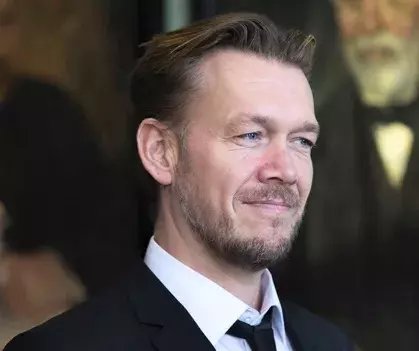“On Physical Law and the Politics of Knowledge” - seminariun z prof. Rickiem Dolphijnem
Prof. Rick Dolphijn z Uniwersytetu w Utrechcie bierze udział w programie Profesorowie Wizytujący UG. Badacz prowadzi cykl seminariów poświęconych Cosmophilosophy. Spotkania odbywają się w ramach programu Kultura (dla) zrównoważonego rozwoju CZRUG, którego koordynatorką jest dr Irena Chawrilska we współpracy z Wydziałem Filologicznym.
Najbliższe seminarium pt. “On Physical Law and the Politics of Knowledge” odbędzie się 24 kwietnia 2024 r. w godz. 13:00-15:00 w Centrum Zrównoważonego Rozwoju UG na Wydziale Nauk Społecznych, ul. Bażyńskiego 4, pok. D208.
Omówione zostaną teksty:
- Alfred North Whitehead 1929 The Order of Nature Section 9, 10 and 11. In: Procesand Reality. Free Press. New York 1978.
- Isabelle Stengers 2010 Chapter 7:The Power of Physical Laws. In: Cosmopolitics I. Minnesota University Press. Minneapolis 2010.
Udział w seminarium jest bezpłatny. Osoby chętne do wzięcia udziału w seminarium zapraszamy do kontaktu mailowego: irena.chawrilska@ug.edu.pl
Zobacz harmonogram seminariów.
Opis seminarium w języku angielskim:
For centuries, our focus in social sciences, humanities, literature, and cinema has centered on the intricacies of human existence and its connections to others. We saw ourselves as subjects, while the Earth remained a passive object. Yet, today’s revelation of our impact on planetary systems exposes a stark truth: the Earth is the true subject, while we, perhaps unwillingly, find ourselves as objects, unable to heed its needs.
This paradigm shift demands a reimagining of our identity, our relationship with other species, and our planet—a comprehensive revision. Pioneers like Donna Haraway and Gilles Deleuze highlighted the complexity of interconnectedness of nature, challenging the prevailing anthropocentric views in academia. Their ideas—embracing non-human companions and emphasizing connections between diverse life forms—propose a world beyond traditional hierarchies.
The concepts of new materialism, posthumanism, and process ontology, advocated by the wider circle of academics and artists who think along these lines, not only challenge established notions but also urge us to question why we’ve been oblivious for so long. How have our modern, capitalist lifestyles alienated us from the environment, imperiling our future while we turn a blind eye?
This philosophy, which I term “Cosmophilosophy,” invites us to reassess life, order, and our Earth, by exploring alternative traditions and futures. How do we practice a perspective that acknowledges our interdependence with the more-than-human world? How can we reimagine art and technology as tools to explore life on Earth differently? And crucially, how do we initiate change within ourselves?
Across these three seminars, my objective is to conduct a thorough examination of pivotal texts that steer away from the concept of Otherness and our Humanist perspective. Instead, they offer diverse takes on what a cosmophilosophy might entail. Beginning by reconceptualizing our notions of nature and humanity (session 1), we progress to a reconsideration of physical laws and the way this has shaped the politics of knowledge (session 2). Finally, we conclude by reevaluating contemporary art and our historical (philosophical) partnerships, probing into the methods of situating communities in the present day.

Rick Dolphijn
Rick Dolphijn jest profesorem nadzwyczajnym na Wydziale Nauk Humanistycznych Uniwersytetu w Utrechcie i profesorem honorowym na Uniwersytecie w Hongkongu (Wydział Sztuki). Jego zainteresowania badawcze obejmują tematy ekologii, filozofii i sztuki.
Dr. Rick Dolphijn – Utrecht University (uu.nl)
Czym jest program Kultura (dla) zrównoważonego rozwoju CZRUG?
W ramach programu Kultura (dla) zrównoważonego rozwoju Centrum Zrównoważonego Rozwoju podejmuje krytyczny namysł nad rolą kultury we wdrażaniu celów zrównoważonego rozwoju. Kultura stanowi podstawę umożliwiającą zrozumienie strategii i działań podejmowanych w procesie wdrażania celów Agendy 2030. CZRUG prowadzi badania związane z kulturą (dla) zrównoważonego rozwoju, inicjuje dyskusje dotyczące istotnych wyzwań współczesnego świata, tworzy wirtualną półkę z książkami związanym z celami SDG, podejmuje działania mające na celu promocję wizji budowy lepszego świata z korzyścią dla mieszkańców planety oraz jego naprawy, koncentrując się na 5 obszarach znanych z Agendy 2030: ludziach, planecie, dobrobycie, pokoju, partnerstwie.




